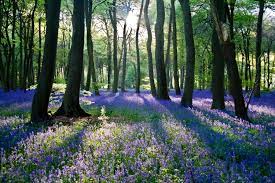The Beauty of Nature
Nature is a wondrous and awe-inspiring force that surrounds us every day. From the majestic mountains to the serene lakes, nature’s beauty is unparalleled in its diversity and magnificence.
One of the most remarkable aspects of nature is its ability to provide a sense of peace and tranquility. Whether you’re taking a leisurely stroll through a forest or gazing at a starry night sky, nature has a way of calming the mind and soothing the soul.
But nature is not just about beauty and tranquility; it is also a powerful force that shapes our world in profound ways. From the life-giving properties of plants and trees to the awe-inspiring displays of natural phenomena like thunderstorms and waterfalls, nature reminds us of its strength and resilience.
Furthermore, nature plays a crucial role in sustaining life on Earth. The delicate balance of ecosystems ensures that plants, animals, and humans can coexist harmoniously. By preserving and protecting nature, we are safeguarding our own future and that of generations to come.
As we navigate through our busy lives, it’s important to take a moment to appreciate the beauty and wonder of nature that surrounds us. Whether it’s watching a sunrise or listening to birds chirping in the trees, connecting with nature can bring joy, peace, and perspective into our lives.
So let’s cherish and protect this precious gift that Mother Nature has bestowed upon us, for it is in nature that we find solace, inspiration, and true beauty.
Exploring Nature: Understanding Its Meaning, Concepts, Role in Our Lives, and Varieties
- What did nature mean?
- What is the concept of nature?
- What is nature in our life?
- What are the types of nature?
What did nature mean?
The concept of nature encompasses the physical world and all living organisms, as well as the forces and processes that govern them. Nature is often regarded as the environment that exists independently of human activities, encompassing landscapes, ecosystems, and natural resources. It embodies a sense of harmony, beauty, and interconnectedness, highlighting the intricate relationships between living beings and their surroundings. Nature is not only a source of inspiration and wonder but also a provider of essential resources for life on Earth. It serves as a reminder of the inherent balance and resilience of the natural world, inviting contemplation on our place within it and our responsibility to protect and preserve its integrity for future generations.
What is the concept of nature?
The concept of nature encompasses the physical world and all living organisms that exist within it. It refers to the natural environment around us, including plants, animals, landscapes, and ecosystems. Nature is often associated with beauty, tranquility, and harmony, as well as the cycle of life and the interconnectedness of all living things. It serves as a source of inspiration, wonder, and sustenance for humans and plays a vital role in sustaining life on Earth. Understanding and respecting the concept of nature is essential for promoting environmental conservation, biodiversity preservation, and a deeper appreciation for the natural world that surrounds us.
What is nature in our life?
Nature plays a vital role in our lives as it provides us with essential resources, sustains our well-being, and offers a source of inspiration and solace. From the air we breathe to the food we eat, nature is intricately woven into every aspect of our existence. Its beauty and diversity remind us of the wonder and complexity of the world around us, offering a sense of peace and connection that is invaluable for our physical, mental, and emotional health. By nurturing a deep appreciation for nature, we not only enhance our quality of life but also cultivate a sense of responsibility to protect and preserve this precious environment for future generations.
What are the types of nature?
Nature encompasses a wide variety of types and forms that showcase the diversity and beauty of the world around us. Some common types of nature include terrestrial ecosystems such as forests, grasslands, deserts, and wetlands. Aquatic ecosystems like oceans, rivers, lakes, and ponds are also integral parts of nature. Additionally, nature can be classified into biological categories such as flora (plants) and fauna (animals), each with its own unique characteristics and habitats. The intricate web of interconnected natural systems highlights the complexity and richness of nature in all its forms.





